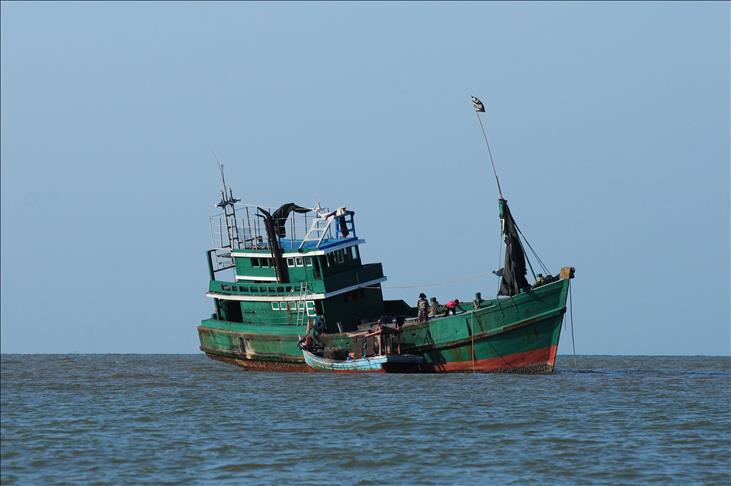
By Max Constant
BANGKOK
Thailand’s military has rejected the United States’ offer to help patrol Thai waters in search of migrant boats adrift in the Andaman Sea, local media reported Sunday.
The U.S. forces had asked Thai military authorities several times to allow an American surveillance aircraft, recently used in a training exercise on Phuket island, to extend its stay. From there, it could assist in providing humanitarian aid to Bangladeshi and Muslim Rohingya migrants stranded in desperate conditions on boats.
Thai armed forces, however, have rejected the request and asked all U.S. forces to leave with the aircraft by Friday, out of concern over U.S. interference or moves to the disadvantage of Thailand’s handling of the migrant issue, according to the Bangkok Post.
Thailand launched a crackdown against human trafficking earlier this month after the discovery of more than 30 bodies in camps along the southern border with Malaysia. Following the measures, smugglers began fleeing, with boatloads of the migrants then turning up on Thai, Indonesian and Malaysian shores - while many more remained at sea.
While Malaysia has launched search and rescue operations and agreed alongside Indonesia to accept to shelter Rohingya migrants for one year, Thailand has maintained a strict policy on the issue, refusing to open temporary refugee shelters.
Thai junta chief-cum-Prime Minister General Prayuth Chan-ocha said this week that all migrants coming to Thai shores would be considered illegal and detained at immigration centers.
The Thai authorities’ policy has been strongly criticized, including by some media within the country.
Editorialist Wasant Techawongtham wrote in Saturday’s Bangkok Post, “Thailand and its people had always been proud of their Buddhist traditions, steeped in compassion and kindness towards the less fortunate.”
He mourned that “recent events have shown that legacy is a thing of the past.”
“What happened to have turned a once kind and compassionate people into a hard-hearted one?” he wrote.
Thailand is under immense pressure to clamp down on human smuggling after the country was downgraded to the lowest level in a U.S. State Department Trafficking in Persons report in June last year.
Meanwhile, Sunday’s Post carried an opinion piece in which a government official from Myanmar – from where many Rohingya have fled – again expressed the view that the stranded migrants do not originate from the country.
Myanmar has been under pressure to help stem the flood of migrants who have been attempting to land on shores across the region.
Zaw Htay, an adviser to President Thein Sein, stressed that the country’s leaders would not accept “the blame game foisted on them by the international community.”
“Allegations that the boat people had left Myanmar are completely wrong… Most of them are not from Myanmar, although a few among them might be,” he wrote. “It is very clear that Myanmar is not the source of the problems relating to boat people in the Andaman Sea, but rather a partner for solutions.”
On Friday, the Myanmar navy rescued a boat where 208 people were staying below deck in the Bay of Bengal. Myanmar officials have said that all those onboard were Bangladeshi men who would be sent back to their country.
Myanmar does not recognize the Rohingya, preferring to refer to them as Bengali, which suggests they are from neighboring Bangladesh.
Rohingya - who the United Nations consider to be the world’s most persecuted ethnic minority - have been fleeing Myanmar in droves since 2012, in fear of violence that some human rights groups consider to be state-sponsored.
According to humanitarian organizations, around half of the migrants in the region are Rohingya and the other half Bangladeshi.
There are 1.3 million Rohingya living in Myanmar’s Western Rakhine state, where they are denied citizenship and economic opportunities. Since clashes between Muslims and Buddhists erupted in 2012, around 140,000 Rohingya have fled their homes and live in squalid camp.
The exodus of Rohingya using smuggling networks to reach Malaysia and Indonesia predates the 2012 incidents, but has expanded since then.
The intergovernmental International Organization for Migration estimates that around 28,000 Rohingya and Bangladeshi have boarded smugglers’ boats to travel to Malaysia and Indonesia since the beginning of the year.
Anadolu Agency website contains only a portion of the news stories offered to subscribers in the AA News Broadcasting System (HAS), and in summarized form. Please contact us for subscription options.







